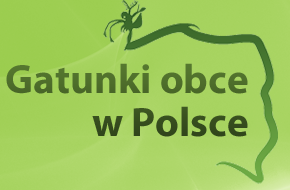Project
Invasive Alien Species (IAS) are widely recognized as a significant threat to global biodiversity, second only to habitat loss. The collection and dissemination of information on IAS are critical components in addressing the challenges they present.
In 1999, the database on species introduced into Poland was developed at the Institute of Nature Conservation, Polish Academy of Sciences in Krakow for the Ministry of the Environment. In 2003, thanks to a grant from the US State Department, part of the data was translated and made accessible on the Internet.
In 1999, a database documenting species introduced to Poland was developed by the Institute of Nature Conservation, Polish Academy of Sciences in Kraków, for the Ministry of the Environment. In 2003, with a grant from the US State Department, part of this data was translated and made publicly accessible online. Since 2009, thanks to the collaboration of a group of experts, the database has been continuously expanded. It now includes over 2,000 species of alien and cryptogenic plants, animals, and fungi. The database contains varying levels of detail for each species, ranging from basic names to comprehensive datasheets.
The Polish database is also part of international networks focused on biological invasions, including the Global Register of Introduced and Invasive Species: Global Register of Introduced and Invasive Species.
While we have made every effort to ensure the accuracy of the data, we acknowledge that some inconsistencies and errors may remain. The Institute of Nature Conservation PAS is not responsible for any direct or indirect damage to users or their property resulting from reliance on the information provided on this site.
For questions or comments about the database, please contact us at:
Gatunki Obce w Polsce
Instytut Ochrony Przyrody PAN
Al. Mickiewicza 33
31-120 Kraków
ias@iop.krakow.pl
tel. +12 37 03 539

